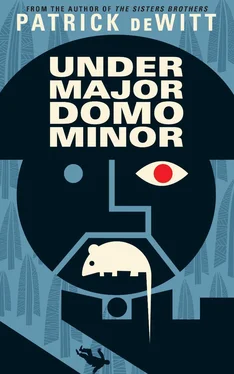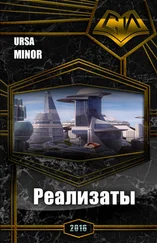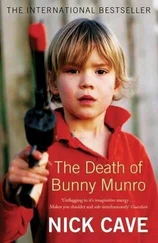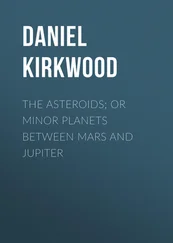Memel raised his eyebrows, his head bobbing side to side, as though the notion were a fascination to him.
“Will you stop it or won’t you?” Lucy asked.
“Oh, all right.”
Lucy struck out for the village. That he had no use for company was clear, but Memel and Mewe were blind to this, and they hurried after, that they might walk alongside him. “We’re happy to see you, do you know?” said Memel. “You left in such a rush last night, we weren’t sure what to think.”
“Just that it was time for me to go, I suppose.”
“Clearly it was that. But will you come by this evening, I wonder? I’ve bagged a fine hare this morning, and Klara will prepare us a stew.”
“Actually,” said Mewe, “it was I who bagged the hare.”
“A hare was bagged, is all he needs to know.”
“I should think he would want to know the truth.”
“Yes, and how will he hit upon it with you spouting untruths?”
Lucy interrupted them. “I don’t think I will visit you tonight,” he said.
Memel and Mewe were taken aback by this. “And why not?” asked the former.
Recalling their leering, mocking faces in the candlelit shanty, Lucy told them, “I would rather not come, is all.”
Now the pair shared a solemn look, and Memel said, “Do you know something, Mewe? I don’t believe Lucy likes us.”
“I think you may be right,” said Mewe.
Memel meditated on it. “But why doesn’t he?”
“I don’t know why.”
“Well,” said Memel. “It doesn’t feel very good, does it? Being disliked?”
“No, it certainly doesn’t.”
Memel meditated further. “Do you think that perhaps he likes us a little bit, though?”
“Perhaps. But not enough to dine with us, it would seem.”
“It’s a pale flame, is that what you’re saying?”
“He likes us, but barely,” Mewe said, nodding.
“A pale flame indeed. Well, what can we do about it, eh?”
“Yes.”
“If he thinks we’ll beg after his friendship, he might think again.”
“Yes.”
“And, who’s to say? Perhaps he’ll acquire a taste for our company in time.”
“I think that’s quite possible.”
“I suppose there’s nothing but to wait and see, then.”
“That’s all, yes.”
“Wait and see and hope for the best.”
“That’s all.”
Chatting in this breezy manner, Memel and Mewe stepped away from Lucy. Memel was twirling the hare in a carefree fashion; he tossed it to Mewe, who caught it, and tossed it back. Lucy had fallen back to watch them go but now resumed walking, following them at a distance. He had his shopping to do.
Regarding the vegetables, Lucy fared moderately but not particularly well. The grocer, a grimly lipless woman in her later middle years, sold only potatoes, squash, carrots, and onions, and those available were not all that fresh. Upon inspecting the goods, Lucy requested superior merchandise, and was confident superior merchandise existed on the premises, but the grocer was disinclined to do a stranger favours, and made no attempt to mask this. Thinking in the long term, Lucy accepted the partial defeat with a brave face, wishing the woman a happy day as he stepped away from her stall. But he knew he must not falter in respect to the meat, for if this came to pass, then his maiden outing would surely be considered a failure.
As he entered the neighbouring stall he took on the posture of a man who could not conceivably be taken advantage of. He was confronted by a blood-streaked brute of a fundamentally dissatisfied man: the wily butcher, who might have said a hundred things in response to Lucy’s greeting, but who chose to say nothing; he merely stared, with a look in his eye that somehow imparted both malice and indifference. When Lucy pointed out the fact of his being newly installed at the castle, the wily butcher said, “No more credit.”
“Oh, I’ve got money, sir,” said Lucy, passing over the coin he’d received as change from the grocer. The wily butcher held the coin in his palm, studying it for a time. “What do you want,” he asked, and Lucy began to read aloud the list Mr Olderglough had made out for him. Halfway through this, the wily butcher said, “Stop.”
“But I’m not done with the list yet, sir.”
“That’s all you’re going to get for the coin.”
“Mightn’t you extend our credit just the once more?”
“I might not.”
“May I ask how much is owed you?”
The wily butcher named a figure which was much higher than Lucy would have thought. It was so much more than he’d have guessed that he could think of no words to say in reply, and he wished he’d never requested the information in the first place. The very naming of this numeral set the wily butcher off; his breathing quickened, and his face became increasingly red. “I’d be within my rights to take this coin and give you nothing, what with the amount due me. Is that what you want?”
“No, sir.”
“Then you’ll get what the coin allows, and go away happy.” Now he took out his long knife and began sharpening it, his back to Lucy, who stood considering what he might have done differently to have won the unpleasant man’s approval. But he could think of nothing, for he had done nothing wrong; the animus belonged to someone else. And yet, it occurred to him, if he came away with faulty goods, who would receive the blame? He alone. His reputation thus imperilled, he called out, “No gristle, now.” When he said it, the wily butcher became statue-still.
“What did you say to me?” he asked.
There was in his voice a just-contained fury, and on hearing this, then did Lucy become aware of the magnitude of his error. When the wily butcher turned to face him, the man’s expression was so grotesque that Lucy became fearful of physical violence.
“I meant no offence, sir,” Lucy told him.
“But what did you say ,” asked the wily butcher, long knife gripped in his fist.
Lucy was considering retreat when a voice sounded behind him: “You heard perfectly well what he said.” He turned to find Klara standing there, a look of mischief on her face. “Now give him what he asked for already, you mean old bull.”
“Oh, hello, Klara,” said the wily butcher, his eyes dropping shyly to the ground. With her arrival, all the meanness had left the man, and now he resumed the sharpening of his knife. Klara stepped closer to Lucy. “Hello,” she said.
“Oh, hello.”
“Father says you won’t visit us again. Is it true?”
“I suppose it is,” he said.
She peered searchingly into Lucy’s left, then right eye, as one trying to locate something in a dark room. “But why won’t you?”
“Well, I’m very busy, is all.”
“What is it you’re so busy with, can I ask?”
“There are many tasks befallen me.”
“And will you name some of these tasks?”
“I suffer through any number of time-consuming endeavours.”
She said, “I noticed you watching us from your window.” Lucy hadn’t thought anyone could see him spying, and he blushed terribly to learn that it was so. Surely Klara noticed his embarrassment, but she had no reaction to it, which exhibited a kindness, he thought. Was there anything crueller than a body commenting on another body’s shame?
“What do you see, when you look at us?” she asked.
Bowing his head, he said, “Just, people.”
“No one special?”
“I didn’t say that.”
In a tight voice, she said, “But Father claims that you don’t like us.”
“No,” he told her. “That’s not what it is.”
“Well, what is it, then?”
“Just that I don’t enjoy being made to feel foolish.”
“And who is it that makes you feel foolish?”
Читать дальше












